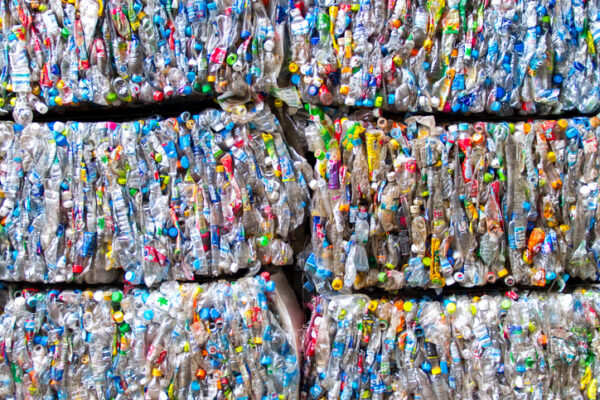
Based on Recently Passed SB 54, Local Governments May Consider Banning Certain Single-Use Foodware Items Before Year’s End
April 7, 2023The Plastic Pollution Prevention and Packaging Producer Responsibility Act may encourage local governments to ban certain single-use packaging and plastic food service ware materials before January 2024 to avoid its collection requirement.
Adopted in 2022, the Plastic Pollution Prevention and Packaging Producer Responsibility Act (also known as SB 54) is California’s landmark legislation aimed at reducing single-use packaging and plastic single-use food service ware. As the title suggests, the law is focused on plastic producers. However, it also has implications for local governments. SB 54 requires that they and their waste haulers collect all items that the state deems “recyclable” and “compostable” under the Act. Local jurisdictions that don’t want to collect certain items in their waste management systems must ban their sale or distribution before the state issues its lists of compostable and recyclable covered materials.
Materials covered by the expansive new state law include single-use packaging and plastic single-use foodware such as trays, plates, bowls, clamshells, lids, cups, utensils, stirrers, hinged or lidded containers, straws, wraps, wrappers, and bags sold to food service establishments. SB 54 requires that these “covered materials” offered for sale or distributed in the state be recyclable or compostable beginning in 2032. Additionally, the law sets recycling rates for plastic covered material, starting at 30 percent in 2028 and increasing to 65 percent in 2032. Finally, the law sets a 25 percent source reduction requirement by weight and plastic component for regulated plastics sold in the state. This requirement must be achieved by shifting plastic covered materials to refillable or reusable materials, or by eliminating or shifting plastic components to non-plastic material.
In adopting the law, the Legislature declared its intent to establish a “new statewide comprehensive circular economy framework” to “shift the burden of costs to collect, process, and recycle materials from [local government] to the producers of plastic products” and to “ensure that [local government] will be made financially whole for any new costs incurred associated with the implementation” of the law. Producers of covered materials are required to form a Producer Responsibility Organization (PRO) to carry out the law, including by creating a plan to achieve the law’s goals. The PRO must charge its participants a fee sufficient to fund the law’s requirements. The law also establishes the California Plastic Pollution Mitigation Fund and requires producers to pay a fee that will be used to mitigate the environmental effects of plastic.
Despite its producer focus, SB 54 also has implications for local governments and solid waste collectors. In particular, the law requires that all local jurisdictions and recycling service providers include in their collection and recycling programs all covered materials contained on lists of “recyclable” and “compostable” materials. The California Department of Resources Recycling and Recovery (CalRecycle) is tasked with adopting the lists by January 1, 2024. Covered material will be deemed recyclable or compostable based on existing standards set out in the Public Resources Code and related regulations. The law allows for certain exceptions, and it makes clear that local jurisdictions and recycling service providers may collect additional materials for recycling or composting that are not on the lists. Importantly, the law also includes an exemption: a local jurisdiction is not required to collect a material category that is subject to a local ordinance prohibiting the sale or distribution of that covered material in the jurisdiction, so long as the ordinance is passed before the state publishes its lists of recyclable and compostable materials.
Thus, local governments that do not want to collect certain items that may make it onto the state’s lists of recyclable or compostable materials may seek to adopt bans on those materials before CalRecycle publishes its lists. However, even if a local government does not ban such materials before the state issues its lists, there is no indication that SB 54 would preclude that jurisdiction from later adopting or enforcing a ban. Instead, a jurisdiction adopting such a ban after January 1, 2024 would simply be required to collect the items it bans if they are on the state’s lists and use methods other than non-collection to enforce the ban.
Many questions remain about the implementation of SB 54. For instance, CalRecycle is required to adopt regulations by 2025 to implement and enforce the new law. These regulations will provide much additional detail about how the law will take effect. Additionally, the law requires a future Producer Responsibility Organization plan to set out the timeline and actions the producers will take to meet the law’s requirements, including the technologies and means they will use and how their budget will fund their actions. However, despite this uncertainty about how the law will be implemented, local jurisdictions might consider seizing the current opportunity to ban items locally that they do not want to collect that could make it onto the state’s lists of “compostable” or “recyclable” materials.